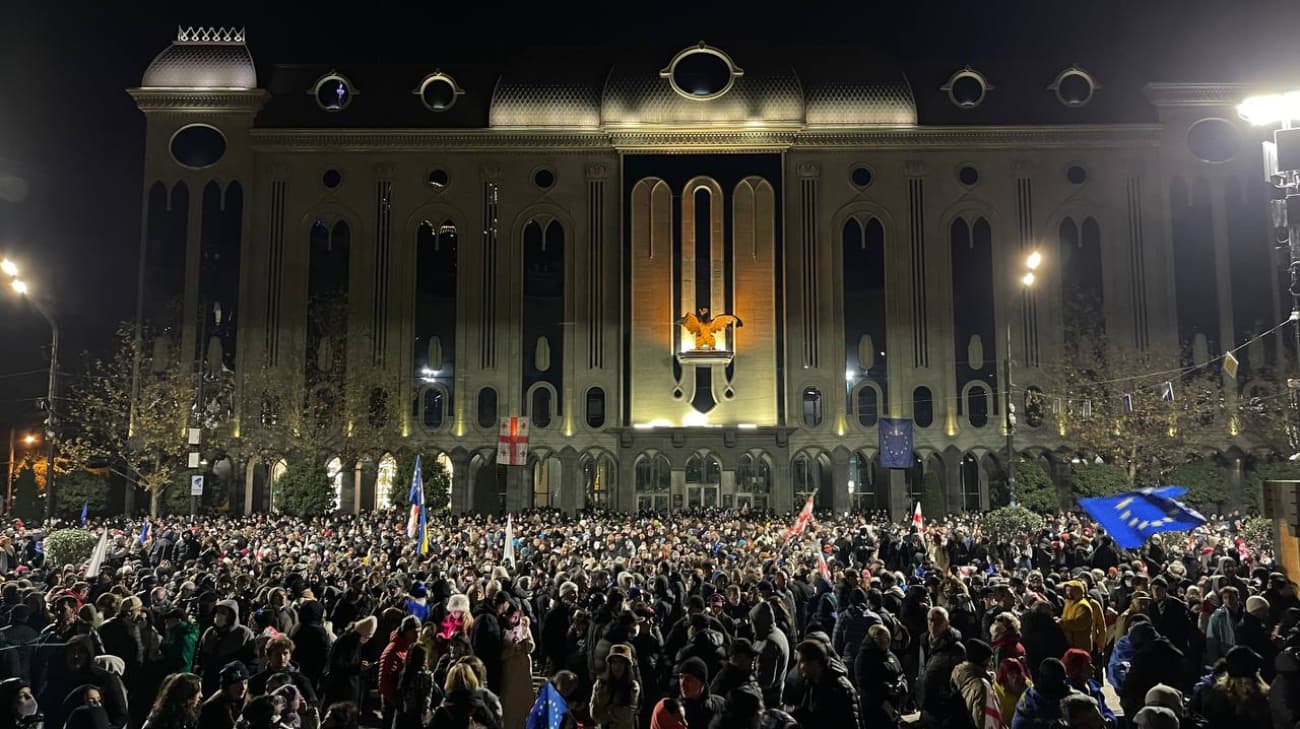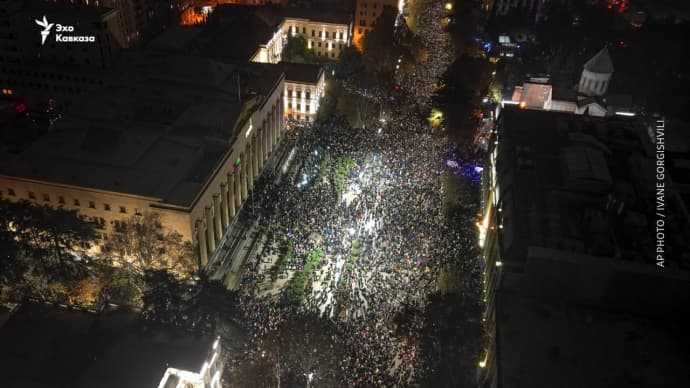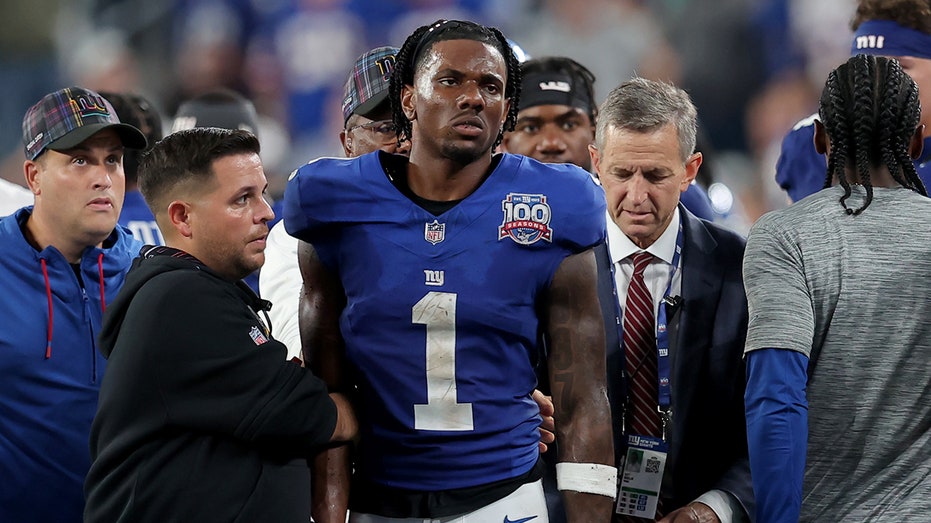Protests resume in Georgia: government uses force to disperse protesters – photos, videos
Mass protests have resumed in Georgia against the country's departure from the European path. The government is using force to disperse the protesters. Source: Georgian service of Radio Svoboda (Radio Liberty) Details: Opponents of the pro-Russian Georgian Dream party and the current government gathered on Rustaveli Avenue in Tbilisi in front of the parliament building on the evening of 30 November.

Mass protests have resumed in Georgia against the country's departure from the European path. The government is using force to disperse the protesters.
Source: Georgian service of Radio Svoboda (Radio Liberty)
Details: Opponents of the pro-Russian Georgian Dream party and the current government gathered on Rustaveli Avenue in Tbilisi in front of the parliament building on the evening of 30 November. People oppose the decision of the pro-Russian Georgian Dream party to abandon negotiations on Georgia's accession to the EU.
The protesters blocked the roadway of the central avenue of the Georgian capital.

The protesters burned an effigy of the party's founder, Bidzina Ivanishvili, in order to protest. In response, the Georgian Ministry of Internal Affairs announced police forces would be put on alert.
Later in the night, the Georgian Interior Ministry stated that the protest "went beyond the law on meetings and demonstrations".
Meanwhile, clashes broke out between demonstrators and police on Zubalashvili Brothers Street. The local media reported that the protesters fired firecrackers at the special forces, and the police responded with water cannons.
At around 23:00, the protesters began to erect barricades on Rustaveli Avenue. The special forces used water cannons and tear gas against them. Some of the demonstrators moved to the 9 April park.
The protesters erect barricades, while the police throw tear gas at them.
In addition to Tbilisi, large-scale protests are taking place in Batumi, Zugdidi, Kutaisi, Telavi, Gurjaani and other cities in Georgia.
As reported by Ekho Kavkaza (Echo of Caucasus), people gathered in Batumi to protest both near the government building and the office of the Ajara TV channel. The Georgian authorities responded by deploying a lot of police officers.
The protesters express their disagreement with the decision of the Georgian Dream party and demonstrate solidarity with the protesters arrested the day before.
Background:
- On 30 November, the United States suspended its strategic partnership with Georgia following the Georgian Dream's decision to suspend the country's EU accession process.
- Earlier, President of Georgia Salome Zurabishvili, who is in opposition to the government and parliament, said she would not resign after her term of office and announced her intention to "lead the political processes" in the country. She justified her decision by arguing that there is currently "no legitimate parliament" in Georgia that could elect her successor.
- On Thursday, 28 November, Georgia's Prime Minister Irakli Kobakhidze of the ruling Georgian Dream party confirmed that Tbilisi would not be negotiating EU membership "until the end of 2028".
- Several Georgian ministries have already criticised this decision. President Salome Zourabichvili later stated that the ruling party had declared war on its own people.
- On the evening of Thursday, a large demonstration took place under the walls of the parliament in Tbilisi and there were clashes with the police. Protesters were brutally dispersed with water cannons and tear gas. The security forces used physical violence against people, including journalists and their equipment.
- The protest continued on Friday evening, and police again resorted to violence against the protesters.
- On Saturday, protests resumed in Georgia against the decision of the Georgian Dream party to abandon negotiations on joining the European Union. The protests are taking place at several locations in Tbilisi, including near the Georgian parliament and the building of the Georgian First Channel.
Support UP or become our patron!



